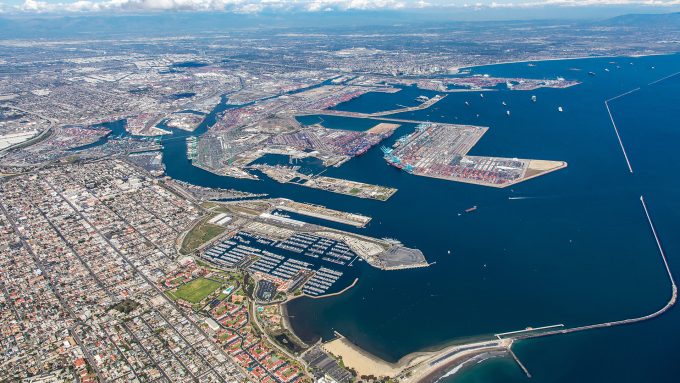Taiwan and South Korea lines don't fear US levy on Chinese ships
Taiwanese and South Korean liner operators are likely to be those least impacted by the ...

As the number of ships awaiting berths at the US west coast container hubs of Los Angeles and Long Beach grows the ports are set to surcharge ocean carriers for extended import dwell times.
From 1 November, the San Pedro Bay ports will charge carriers $100 per container for import boxes moving via truck that remain on terminals after nine days, and the same charge for rail movements after three days.
And the charge will increase by $100 a day thereafter.
“With the ...
Volcanic disruption at Anchorage could hit transpacific airfreight operations
Macron calls for ‘suspension’ – CMA CGM's $20bn US investment in doubt
Forwarders stay cool as US 'liberation day' tariffs threaten 'global trade war'
Shippers snap up airfreight capacity to US ahead of tariff deadline
De minimis exemption on shipments from China to the US will end in May
Tighter EU import requirements proving 'a challenge' for forwarders
Looming Trump tariffs will create 'a bureaucratic monster' for Customs

Comment on this article